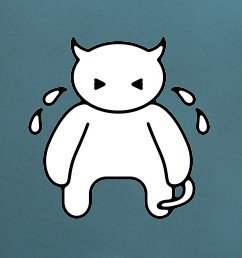12.8.07
A bit English, starts from today.
From now on, I'm going to write in English whenever I feel like to. The reason of doing so --- I need to practise my English since I’m writing a serious matter in English, if not communicate with my friends who don’t understand Chinese. I know I shall be more confident after 5 to 6 years of utilising the language in my studies. It’s a great pressure though, for I know many of you have a good command in English. Imagine how embarrassing it is if one of you jumps out and says:“Stop…! I can’t tahan your English.”. Whatever whatever. I’m writing in English.
Subscribe to:
Post Comments (Atom)

9 comments:
all the best
and good effort
wenhui
Great to hear this!
It's a good start and good try.
cheers!
good good, very good.
ne-mer-mind...
i will try my best to understand what you write coz my ang-moh also no good..haha
anyway, its glad to hear you got new blog. all the best!!
thank you all of you :-)
i'm targetting the English market now. I'll replace Jeff Ooi one day, who knows? :-P
haha, no lah, this blog is just for fun only. let's see how long it can survive :-)
Your English is excellent!
One way to prevent the "Sad laughing stuff" is to translate good Chinese articles into English so that Malaysian-Chinese views can reach out to the other races.
I did not know you write so well, otherwise I wouldn't have translated one of your series to share with my Malay friends: -
--------
Merdekareview.com has run a series on four Malayisians who has shown their love for the country but, unfortunately, the country has not shown its love towards any of them.
Arutchelvan began by helping people of his own race: Born into a middle class family, he had never realised the conditions of poverty among Indian estate workers until he entered university in 1987 and participated in voluntary medical and tuition projects in Indian estates. He co-founded a race-based welfare group (Jawatankuasa Kebajikan Mahasiswa India) in 1989, but was later touched by the support of some Malay estate workers towards their Indian counterparts. Having realised that poverty is colour-blind, and the poor workers among Malay, Chinese and Indian are all facing similar problems and exploitations, he then widened his concern to cover all workers in the country. He co-founded the Community Development Center in 1992, became a coordinator in a human rights group (Suara Rakyat Malaysia) since 1995 and joined a worker network (Jaringan Rakyat Tertindas/JERIT) in 2001. He has taken part in more than 100 street demonstrations, but alas! he has been detained for 14 times by the authority!
"Traditionally, the Chinese treated the indigenous people as merely 'labourers' while the indigenous people see the Chinese as their 'bosses'. We wanted to change this relationship by exploring the causes of poverty among the indigenous people, joining their ways of life, understanding their needs, and making them understand their own rights as citizens". Unfortunately by doing so Sarawakian Wong Meng Chu (黄孟祚) was isolated by his community and denied of his passport for seven years.
"Our country may have the sky-reaching Petronas Towers, the glittering Putrajaya, but in Irene's eyes, the achievement of a country should be judged by the life quality of its poorest people". Hence Irene Fernandez fought for the welfare of immigrants workers and exposed the abuse of human rights in detention camps. She paid a high price for this by being detained under THE 1984 PRINTING PRESSES AND PUBLICATIONS ACT in Mar 1996, and was sentenced to a-year jail term on 16 Oct 2003.
Nor Alizan bin Ali joined the Malaysian army when he was 18 to fulfill the wish of his father. In the 1980s he fought in the forests in Sarawak, risking his life to protect the multiracial people from the attack of the communists. In 1995 he again made all Malaysians proud by joining the peacekeeping missions in Bosnia and Herzegovina. He retired after serving the country for 21 years and bought a house in Kampung Berembang for his retirement life. Unfortunately the house was demolished by the City Council last year, along 81 houses in the village. "The villagers have been living in the worst condition for nine months now". Alizan says, "The VIPs and their wives are frequently seen at charity dinners, orphanages and old folk's homes, but none of them have looked at us in our eyes. The nation's leader has claimed to love his people, showed his compassionate acts, hugged the stranger's children at public assemblies, and enjoyed the loud praises in the mass media, but he has never heard the cries of us and others who live in great pain."
These are the four heroes that have made me proud as a Malaysian on this Merdeka Day.
I found that your writing is interesting, and very real. Keep up the good job.
I am Fish.
Good for people to know.
Post a Comment